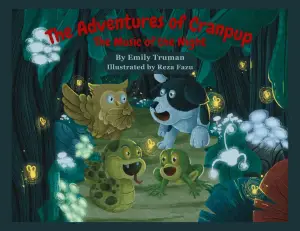I recently had the pleasure of diving into The Win-Win Wealth Strategy: 7 Investments the Government Will Pay You to Make by Tom Wheelwright, and I must say, it was quite an enlightening experience. As someone who has always been intrigued by investments and tax strategies, I was drawn to this title because it promises to transform the common perception of tax incentives from moral loopholes to beneficial tools for wealth generation. With such a bold premise, how could I resist?
What I particularly appreciated about Wheelwright’s approach is the thorough research backing his claims. He explores seven investing strategies that not only benefit our wallets but also contribute positively to society. The detail that governments worldwide endorse these strategies resonated deeply with me. It made me realize that wealth building can indeed align with societal benefit, which is a refreshing viewpoint in today’s often-critical discourse surrounding "the rich."
Among the positives I encountered, I must highlight Wheelwright’s ability to elucidate complex concepts into digestible information. He breaks down how to tax-effectively invest in a variety of sectors, including business, technology, energy, and real estate. This level of clarity is commendable. For instance, his sections on how to leverage tax incentives to help pay for major expenses—like a new car or college tuition—was not only practical but also made me rethink my financial planning strategies.
However, there were a couple of drawbacks I noticed that align with some criticisms from other readers. One common complaint is that while the book is informative, some parts felt overly technical, potentially alienating readers who may not have a background in finance or investing. I found a few sections dense with jargon, which did require me to take a step back and reread to fully grasp the implications. It would have been nice if more straightforward language had been used in those areas.
Additionally, some readers expressed that the book sometimes glosses over the risks associated with these investment strategies. While Wheelwright does address the positives, I would have appreciated a more balanced view that includes potential pitfalls. Investing is inherently risky, and recognizing that is crucial for making informed decisions.
Despite these drawbacks, the book met my expectations in terms of providing actionable insights. The premise that becoming wealthy doesn’t have to conflict with societal good is truly compelling and well articulated throughout the text. It’s an indispensable resource for anyone looking to rethink their approach to wealth-building.
In conclusion, I can confidently say that The Win-Win Wealth Strategy offers a wealth of insights that can empower readers to think differently about investments and taxes. While there are some moments of complexity that might challenge the casual reader, the overarching message is positive and practical. If you’re keen on improving your financial acumen and creating generational wealth while doing good in the world, this book is well worth your time. I’m giving it a solid 4.5 stars for its insightful approach and transformative potential. Highly recommended!








